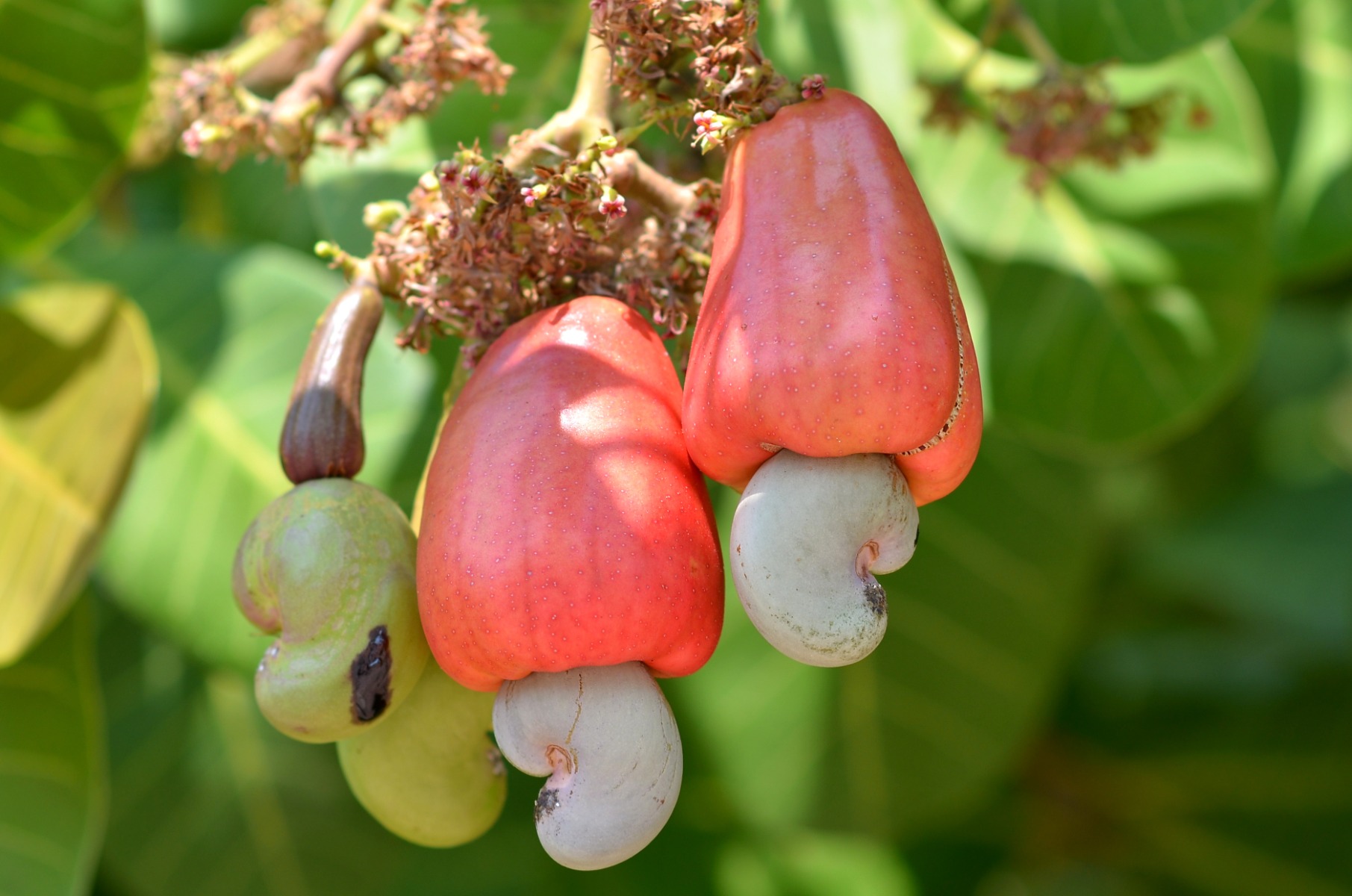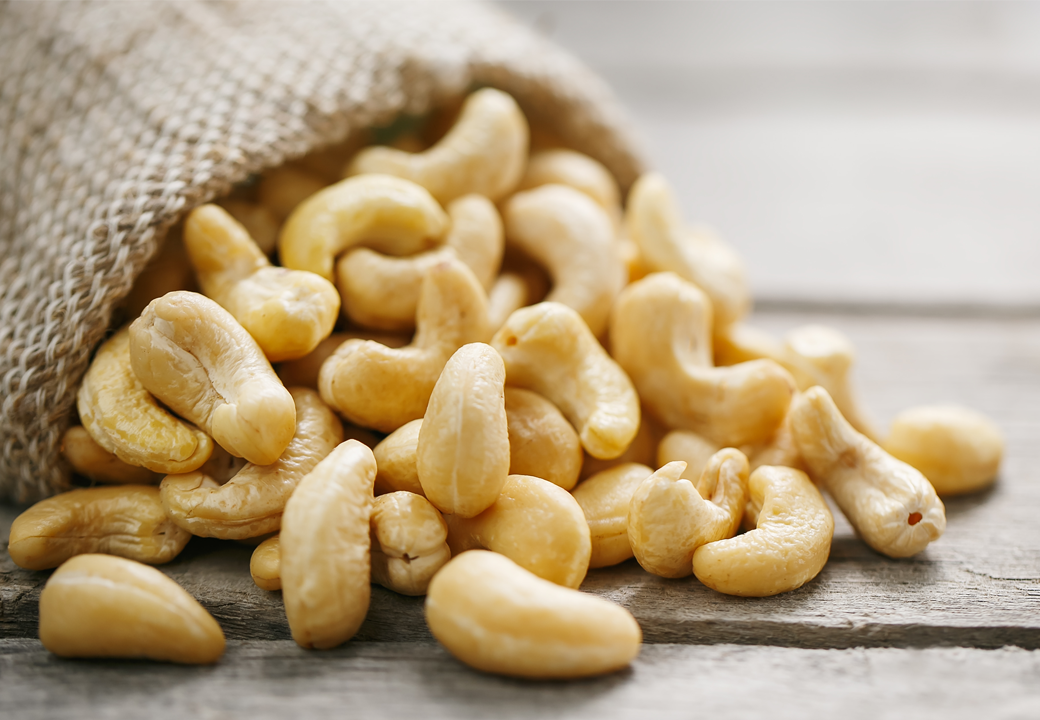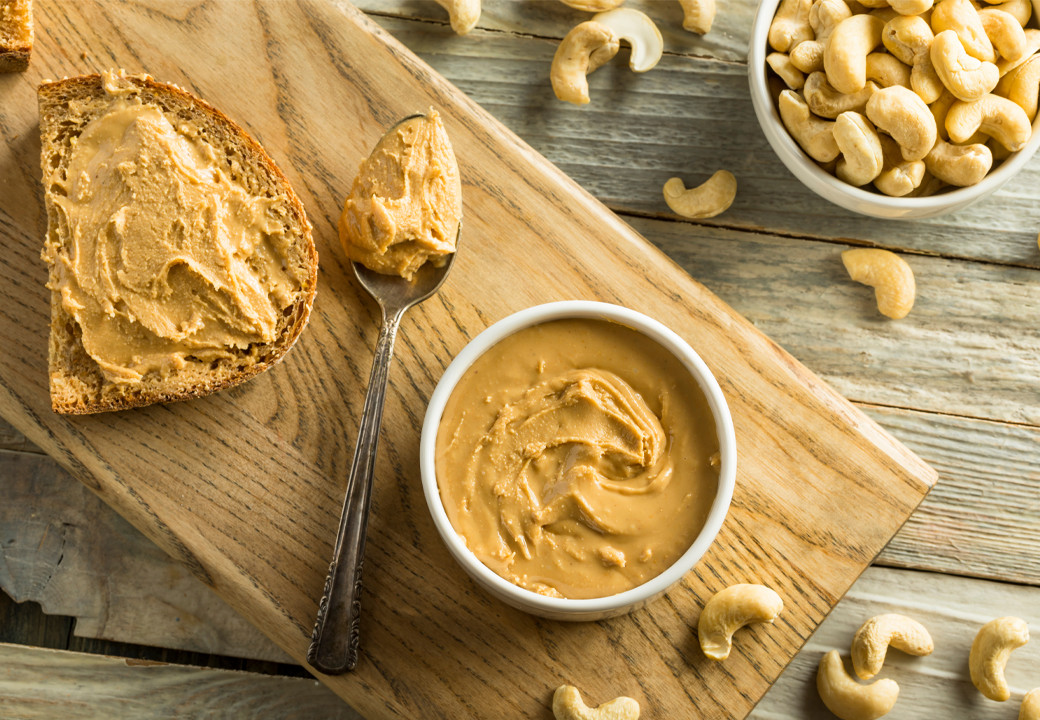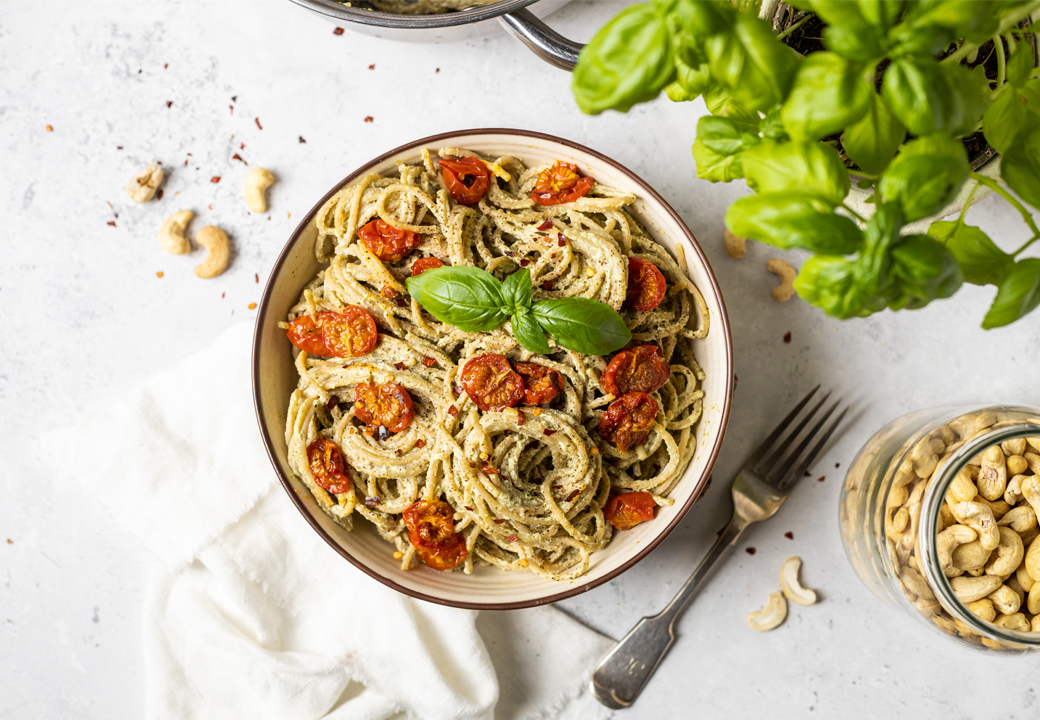
Photo Credit: "© [Wichitpong] / Adobe Stock
How our partners in Africa describe harvesting cashews for Grape Tree.
From a humble start in Brazil the incredibly popular cashew nut is now farmed all over the world wherever the climate is warm enough.
The last 20 years has seen a huge jump in demand for the kidney-shaped nut in baking, to make butters and for cooking.
At Grape Tree our cashews are grown and processed in the west African country of Cote d’Ivoire by an innovative producer which works with local farmers to reduce the carbon footprint of the cashews and boost their local economy into the bargain.
Typically, cashews grown in African countries are exported to India or Vietnam for processing.
But our partners work differently. In the Cote d’Ivoire, Ivoirienne de Noix de Cajou, buy the raw cashew nuts from local farmers before processing them into kernels, employing staff from nearby communities.
The cashew crop is harvested between March and June of each year, and it is only then that their fully traceable kernels are exported to Europe and the US, complying with the highest food safety standards.
It takes around two to three months from picking in the warm climate of Africa until they reach Grape Tree in the UK where they arrive cracked and processed ready to be packed and sold across the country in our stores and online.
A spokesman for INCajou said: “Until we came about, cashews were pretty much faceless. One in two raw cashews are grown by African farmers, exported to Vietnam and India for processing and shipped back to Europe and the United States for consumption. The current industry structure promotes high carbon footprint, poor traceability, low product quality, and no value addition at origin.
“So, we set up Ivoirienne de Noix de Cajou to disrupt the status quo.”
This holistic approach to working with local producers to shell and process the nuts while creating the chain to larger markets helps with wealth creation as well as reducing poverty within the country and region.
With the welfare of their farmers and staff at the front of their operation, INCajou has also achieved what many US and European countries struggle to do. Their management team is 50% women. And of their 450 employees 75% are also women.
INCajou plan to buy 9,000 tonnes of organic in-shell material from their 5,000+ certified smallholders this year which will produce 110 containers of organic products, 70% of which is whole kernels and 30% of which is broken.
A spokesman for INCajou said: “We are proud of our achievements. Thanks to the efforts of each of our employees, INCajou became the first cashew processor in Cote D’Ivoire to be BRC certified on the entire process, from reception of raw cashew nuts to packaging of kernels.”
British Retail Consortium certification schemes are food quality and safety standards developed by British retailers. They are a requirement which many retail brands demand of their suppliers, mainly in the UK but also in Europe and North America.
And as they said at INCajou: “Doing the right thing is great fun.”
Grape Tree founder Nick Shutts agrees: “We are proud of our work to bring sustainable wholesome natural foods to our customers from around the world.”
ALLERGY ADVICE
Every Grape Tree product carries the advisory note “Packed in a factory that also packs cereals containing gluten, nuts, peanuts, sesame and products containing sulphur dioxide/sulphites.” We strive to bring you the very best recipes and current news on healthy eating but would always stress that if you have a medical condition that you follow professional advice before making any changes to your diet.
FAST CASHEW FACTS
- Brazilian Tupi Indians used the ripened fruit of the cashew to mark the passage of time.
- Cashews are only ever sold shelled as their natural shells contain a toxic substance.
- No part of the cashew is wasted. The shell of the nut can also be used to produce oil for industrial and medical purposes. It can even be found as an additive in brake fluid.
- Cashews can only be produced in tropical countries because the tree is frost sensitive.
- A handful of cashews 30 minutes after a workout will help your body rebalance by using the nut’s stored protein reserves to repair and improve your muscles, while the carbohydrate content will help maintain normal blood sugar levels.
- The cashew is the Seeds of the drupe, which grows on the tropical evergreen cashew tree. Technically it’s difficult to classify them but botanically they are considered drupe seeds.


